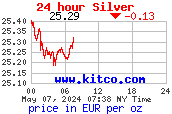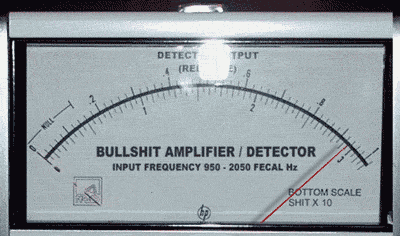Who owns America? Hint: It's not China
A close-up look at who holds America's debt.
Thomas MuchaJuly 20, 2011 17:45
Truth is elusive. But it's a good thing we have math.
Our friends at Business Insider know this, and put those two principles to work today in this excellent and highly informative little slideshow, made even more timely by the ongoing talks in Washington, D.C. aimed at staving off a U.S. debt default.
Here's the big idea:
Many people — politicians and pundits alike — prattle on that China and, to a lesser extent Japan, own most of America's $14.3 trillion in government debt.
But there's one little problem with that conventional wisdom: it's just not true. While the Chinese, Japanese and plenty of other foreigners own substantial amounts, it's really Americans who hold most of America's debt.
Here's a quick and fascinating breakdown by total amount held and percentage of total U.S. debt, according to Business Insider:
Hong Kong: $121.9 billion (0.9 percent)
Caribbean banking centers: $148.3 (1 percent)
Taiwan: $153.4 billion (1.1 percent)
Brazil: $211.4 billion (1.5 percent)
Oil exporting countries: $229.8 billion (1.6 percent)
Mutual funds: $300.5 billion (2 percent)
Commercial banks: $301.8 billion (2.1 percent)
State, local and federal retirement funds: $320.9 billion (2.2 percent)
Money market mutual funds: $337.7 billion (2.4 percent)
United Kingdom: $346.5 billion (2.4 percent)
Private pension funds: $504.7 billion (3.5 percent)
State and local governments: $506.1 billion (3.5 percent)
Japan: $912.4 billion (6.4 percent)
U.S. households: $959.4 billion (6.6 percent)
China: $1.16 trillion (8 percent)
The U.S. Treasury: $1.63 trillion (11.3 percent)
Social Security trust fund: $2.67 trillion (19 percent)
So America owes foreigners about $4.5 trillion in debt. But America owes America $9.8 trillion.
For a smart take on how President Obama and http://www.blogger.com/img/blank.gifHouse Republicans should end gridlock over debt and deficits, see our new GlobalPost series The Negotiator, which features Wharton's negotiation guru Stuart Diamond.
And to bone up on China's debt — another potentially big global economic headache — check out this interview with brainy-yet-coherent Northwestern University economist Victor Shih, who spoke with GlobalPost's David Case.
(More from GlobalPost's Macro Blog: US default watch: Debt deal imminent?)
Globalpost
Inscription à :
Publier les commentaires (Atom)



![[Most Recent Quotes from www.kitco.com]](http://www.kitconet.com/charts/metals/gold/t24_au_en_usoz_2.gif)
![[Most Recent Quotes from www.kitco.com]](http://www.kitconet.com/charts/metals/gold/t24_au_en_euoz_2.gif)



Tout ça, c'est du bidon, du blabla de journaleux payé pour HYPNOTISER les pauvres petits lapins castrés qui se laissent prendre dans les filets de la Matrix.
RépondreSupprimerRappelons-nous que le but du "Jeu" libéral (non pas "néo") est bien au départ et dans le principe de stimuler l'inventivité, provoquer l'Emulation entre les acteurs économiques ...et non pas de jouer sur des "luttes à mort" pour établir un "nouvel ordre" où, en fait, l'individu et même l'entreprise libres n'existeraient plus, subordonnées à l'Etat et aux monopoles.
(R)établissons donc sans tarder le JEU TEL qu'il DOIT ETRE !
UN nouvel-"ancien ordre", amélioré ;-)